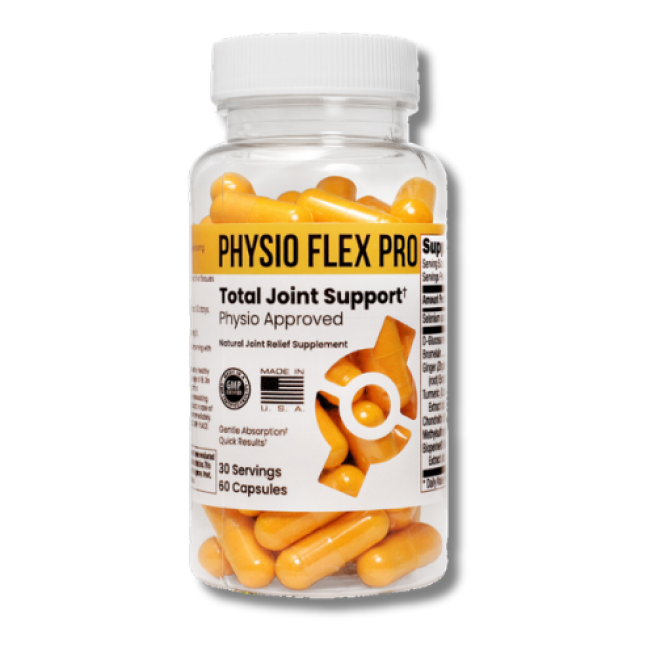Joints facilitate movement in the human body and pain in these meeting points of the bone can create extreme discomfort in people.
According to a Centers for Disease Control and Prevention study, about one in every four American adults suffer from joint pains. The most common reasons for chronic joint pain are usually due to age-related wear and tear of the joint or an autoimmune or inflammatory disease.
Joint pain can also be a result of conditions such as osteoarthritis, rheumatoid arthritis, gout, or connective tissue diseases. Other reasons may include vitamin D deficiency, menopause, or sports-related injuries.

Why Do You Need Supplements for Joint Pain?
Despite consuming a healthy diet, you may still miss out on nutrients that inhibit the secretion of elastase, hyaluronidase, and collagenase. These compounds are essential for chondroprotection in the body and their low levels may lead to the breakdown of cartilage resulting in osteoarthritis.
Furthermore, aging can decrease the production of chondroprotective agents in our bodies. This reduces the ability of your joints to handle force and leads to progressive degeneration.
Intake of good-quality joint supplements (see also 'Best Joint Supplement for Runner’s Knee') helps keep your bones and joints healthy for decades. These extracts with their high bioavailability index lead to better absorption and the utilization of relevant chondroprotective agents.
Which Are Some of the Best Supplements for Healthy Joints?
Here is a list of some of the best supplements for joint pain based on science and research.
1. Glucosamine
Glucosamine (see also 'Glucosamine Supplements For Joint Pain') is an amino sugar that is naturally produced in the human body from glutamine and glucose. However, according to studies, with age, the body’s ability to produce glucosamine may get impaired. This may eventually decrease the strength of articular cartilage.
Long-term clinical trials have shown that enhancing glucosamine levels through supplements leads to a reduction in joint space loss and improvement in their function.
2. Boswellia
Also known as Indian Frankincense, Boswellia is a plant-based extract from the Boswellia serrata tree. Native to India, Africa, and the Arabian Peninsula, this extract has been used for centuries in traditional medicine systems. It is not naturally produced in the human body and needs to be taken as a supplement.
Clinical trials show that this compound significantly reduces the serum levels of high-sensitive C-reactive protein, a potential inflammatory marker. It is also known for its efficacy in reducing osteophytes spurs, pain, and stiffness.
3. Turmeric

The use of turmeric (Curcuma Longa) in the Southeast Asian subcontinent dates back to almost 4,000 years. It is a major part of traditional medicine, cuisine, and culture in this part of the world.
The most active component of turmeric is curcumin, which is a yellow polyphenolic pigment. However, since curcumin is a lipophilic molecule, it exhibits poor absorption and rapid metabolism leading to poor bioavailability.
But how is turmeric good for joint pain?
Turmeric for joint pain (see also 'Vitamins and Other Supplements for Joint Pain') is an effective remedy when taken in the form of supplements. Curcumin has a positive impact on lubricating stiff joints, alleviating pain and the total WOMAC score, as shown by studies.
Considered to be one of the best joint pain supplements, it inhibits pro-inflammatory signals like leukotrienes and prostaglandins and the pain-subsiding impact is often compared to ibuprofen.
4. Chondroitin Sulfate
Chondroitin sulfate is a molecule that the human body produces naturally and is found in connective tissues. It comprises a chain of alternating sugars including glucuronic acid and N-acetylgalactosamine. However, according to research, it has a negative correlation with age.
As per studies, the inclusion of chondroitin sulfate supplements has a positive correlation with pain and deterioration associated with osteoarthritis. Known as the best joint supplement, it protects cells known as chondrocytes that help keep the cartilage strong. It also improves circulation, which makes bones more resilient to arthritis.
5. SAM-e
A naturally-occurring molecule in the human body, SAM-e is produced from folate and homocysteine and has anti-inflammatory properties. Since it cannot be supplemented through food sources, some diseases and deficiencies may lead to its low levels in the body leading to joint pain.
According to a National Library of Medicine study, when taken as a dietary supplement, SAM-e works as a powerful joint health supplement. It stimulates cartilage production, reduces inflammatory mediators, and enhances glutathione levels.
As is evident, these supplements, when combined with adequate nutrition, weight management, and regular exercise have shown excellent joint health benefits. When targeted optimally, they not just help manage joint-related problems but also contribute to preventing them.






